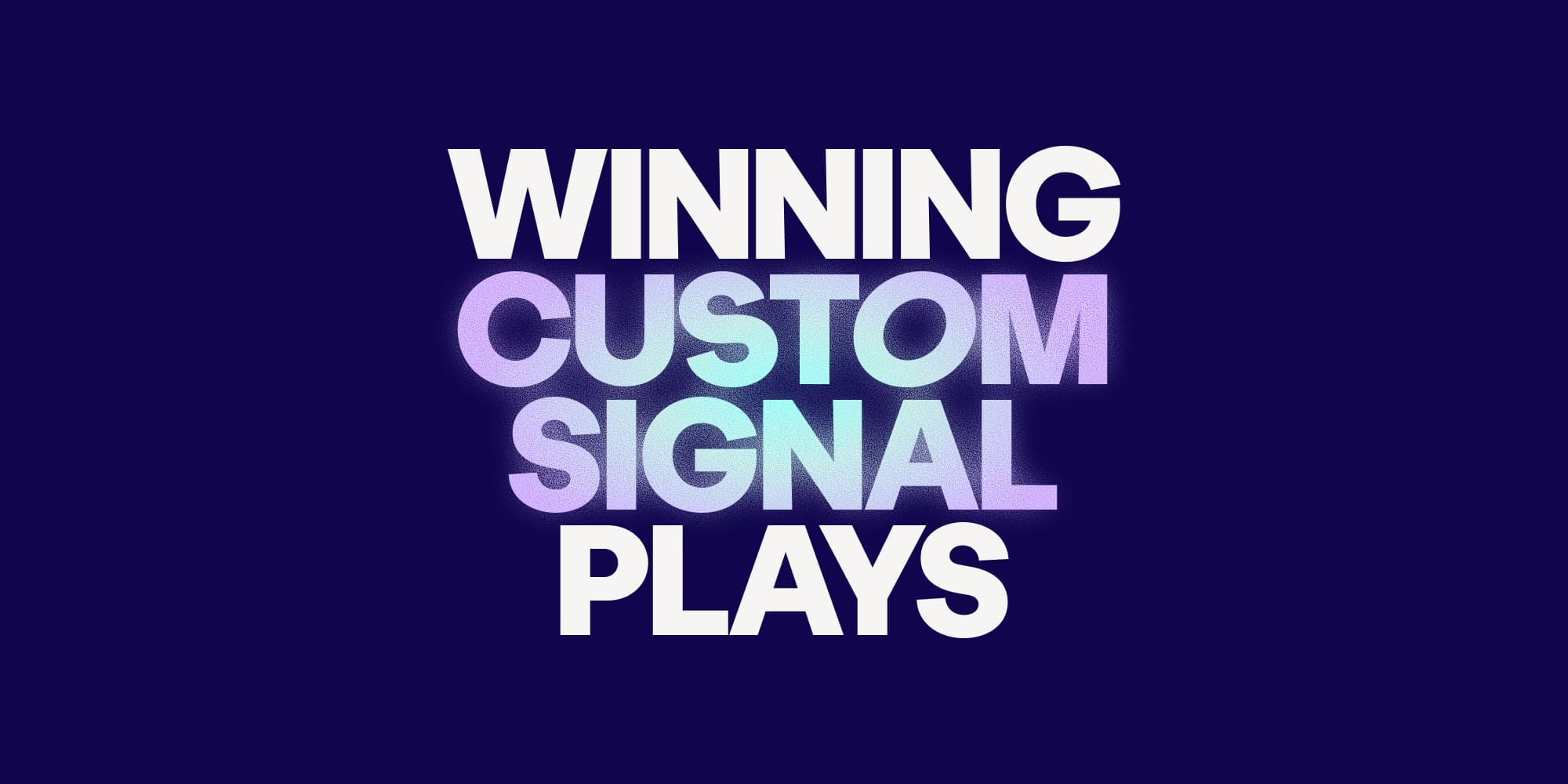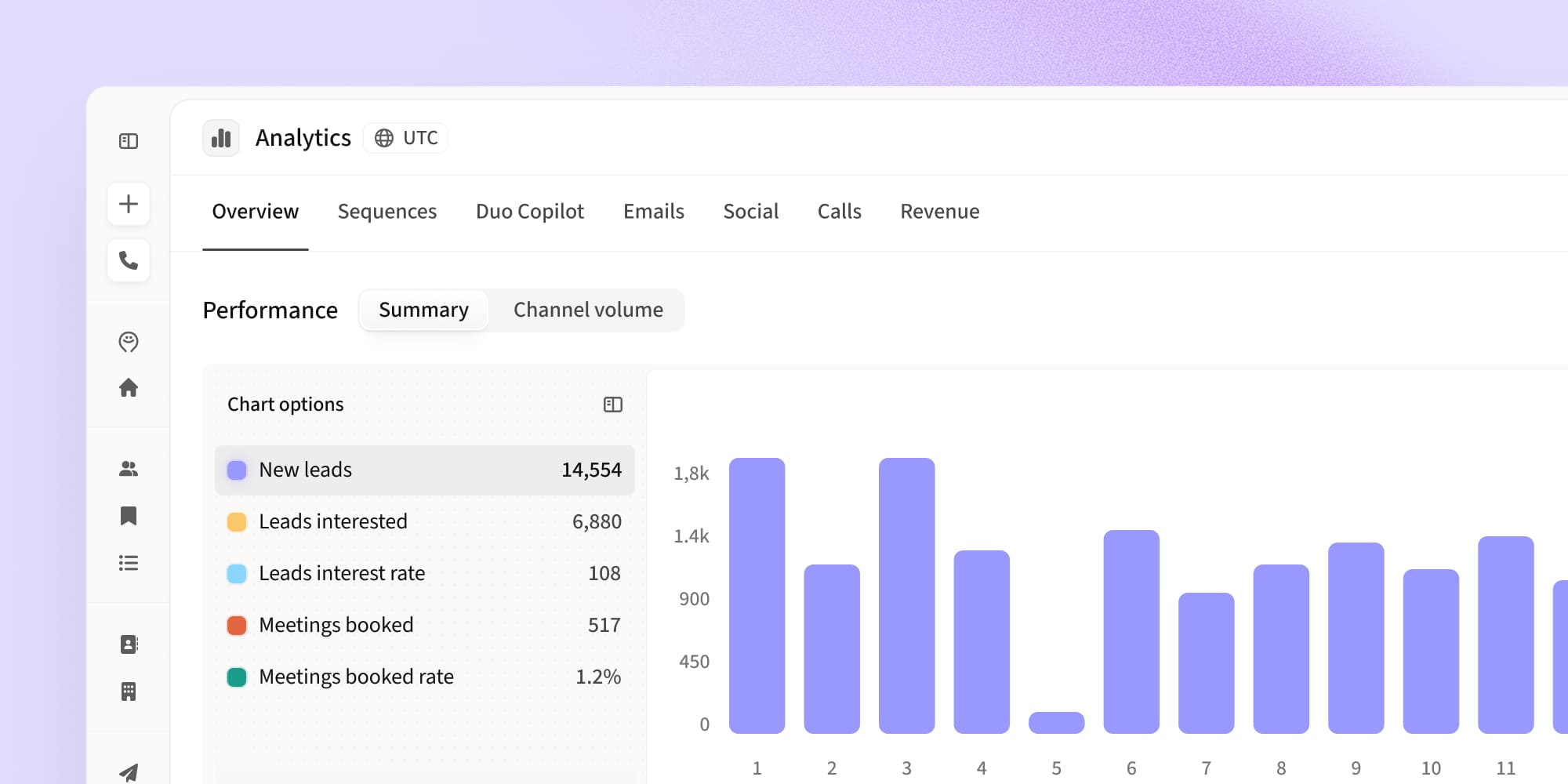Master the discovery call: expert tips & 20 example questions
•
April 29, 2024
.jpg)
The discovery call is one of the first in-depth conversations you get to have with your prospect.
It’s your chance to explore their pains and needs in more detail and decide whether they’re a qualified sales lead. And for your prospect, it’s an opportunity to learn more about your solution and why they should trust you with fixing their problems.
In this blog, we’ll cover the key goals of your discovery calls and how you can strategize for success, plus some general best practices and great discovery questions to pick out sales opportunities!
What is a discovery call?
The discovery call isn’t always the first interaction between a sales representative and a potential client, but it is usually the first in-depth conversation that really gets the prospect talking.
The discovery call serves a dual purpose: to comprehensively grasp the prospect's challenges and objectives while introducing the company's offerings. Ultimately, they allow you to identify qualified leads and ascertain whether there's a potential match to move forward in the sales pipeline.
The importance of discovery calls in sales
Without a discovery call, it can be hard to bridge the gap between initial outreach and a more detailed demo of your product or service.
The discovery conversation allows you to do your research into the prospect’s specific needs so you can tailor the next stages of the sales to solve their problems more directly.
So your main objectives on your discovery calls are as follows:
- To identify qualified leads: By discerning which prospects align with your business offerings, you can prioritize efforts on the most promising opportunities.
- To gain deeper insights: These calls offer invaluable insights into current client challenges and objectives, giving you a more informed perspective on the interests of your target audience.
- To refine and personalize your sales strategy: Armed with insights from discovery calls, you can fine-tune your sales strategies to cater to each client's unique needs, enhancing relevance and impact.
Key components of an effective discovery call
The best discovery calls are those that feel like proper conversations, not checklist question-and-answer sessions.
You need to make your prospect feel valued and make them feel like they’re being identified with as an individual, so active listening and open-ended questions are an absolute must.
Here are some other things that will help you and your prospect get the most out of your discovery calls:
- Thorough research: Before the call, gather comprehensive information about the prospect's industry, challenges, and goals to tailor your approach effectively. Don’t waste valuable call time on basic background questions.
- Clear call agenda: Set a clear agenda for the call, articulating its purpose and objectives upfront to align expectations with the prospect. This includes wrapping up the call with clear next steps.
- Establish rapport: Foster a genuine rapport through open-ended questions, active listening, and positive affirmations, creating a conducive environment for dialogue. Your goal is to get your prospects talking as much as possible about their present problems and what they imagine their ideal solution would look like. You can reassure your prospect that they’re being heard by repeating their answers in your own words and always checking if there’s anything they’d like to add.
- Focus on pain points: Dive deep into the prospect's challenges and pain points, empathetically engaging to understand their implications and consequences.
- Present solutions: Showcase your product or service in a way that resonates with the prospect's needs, linking features to benefits and enticing them towards the next step in the buying journey. Try not to rely on a generic sales pitch; instead, tailor your solution presentation to the pains they’ve been most vocal about.
- Handling objections: Even though it’s still early in the sales process,
- Follow-up: Follow-up with a summary email or personalized notes to keep your prospect engaged after your call. This will help prove to them that you’re listening and attending to their concerns and will help clarify next steps.
- Post-call review: Reflect on the conversation, analyzing what went well and areas for improvement, ensuring continuous enhancement of your approach.
Crafting powerful discover questions for sales calls
What makes a good discovery call question?
As we’ve already mentioned, your prospect doesn’t want to feel like they’re going through a checklist of generic questions.
A good rule of thumb of discovery calls is to avoid yes or no questions and, wherever possible, ask open-ended questions instead.
Examples of good discovery call questions to ask
1. What specific challenges are you currently facing in your industry or organization?
2. Can you describe any pain points or obstacles that have been particularly challenging for your team?
3. How do these challenges impact your day-to-day operations and long-term goals?
4. What goals or objectives are you striving to achieve within your organization?
5. How do you measure success in your role or within your team?
6. Have you identified any gaps or areas for improvement in your current processes or solutions?
7. What prompted you to explore solutions like ours at this time?
8. What are the key factors driving your decision-making process for implementing new solutions?
9. Can you provide insights into your current workflow or operational structure?
10. How do you envision our solution fitting into your existing workflow or addressing your challenges?
11. What outcomes or results are you hoping to achieve by implementing a new solution?
12. How urgent is it for your organization to address these challenges and implement a solution?
13. Who else within your organization is involved in the decision-making process for new solutions?
14. What criteria are you using to evaluate potential vendors or partners for this solution?
15. How do you typically assess the success or effectiveness of new solutions within your organization?
16. Have you explored similar solutions in the past, and if so, what were the outcomes or experiences?
17. What are your budgetary considerations or constraints for implementing a new solution?
18. Can you share any insights into your company's growth trajectory or future plans that may impact your needs?
19. What do you see as the biggest opportunities or challenges facing your industry in the near future?
20. How do you envision our partnership evolving over time to support your evolving needs and objectives?
Things to avoid on a discovery call
Just like when you’re cold emailing, there are some things you should really steer clear of in discovery calls if you want to create the best rapport with your prospect.
Here are some key things to be wary of:
- Talking too much: Avoid dominating the conversation and allow the prospect ample opportunity to express their thoughts, concerns, and needs.
- Interrupting the prospect: Respect the prospect's time and thoughts by refraining from interrupting them while they are speaking. Allow them to complete their thoughts before responding.
- Making assumptions: Don't assume that you know what the prospect needs or wants. Instead, ask open-ended questions to uncover their specific challenges and requirements.
- Overwhelming with information: Avoid overwhelming the prospect with too much information about your product or service. Keep your responses concise, relevant, and focused on addressing their specific needs.
- Being pushy or aggressive: Don't pressure the prospect into making a decision or committing to a sale during the discovery call. Respect their timeline and decision-making process.
- Forgetting to follow-up: After the call, make sure to follow up with the prospect as promised. If you don’t, it’s an invitation for your prospects to turn to your competitors for better service!
Create better buyer journeys with your discovery calls
Mastering the discovery call sets the stage for successful client relationships and opens the door to actionable sales opportunities.
Bad discovery calls are a waste of your prospect’s time, but they’re also a waste of yours. Your pipeline depends on uncovering viable sales opportunities and making a great impression on potential customers - so don’t squander your efforts!
Good discovery is built on good data and effective engagement. Amplemakret ties everything together, syncing call notes and prospect details straight to your CRM for seamless pipeline visibility. Request a demo to see how you can supercharge your sales discovery!
FAQs
What is the difference between a cold call and a discovery call?
The main difference between a cold call and a discovery call lies in their objectives and stages within the sales process:
A cold call is made to a prospect with whom the salesperson has had no prior contact. The primary goal of a cold call is to initiate a conversation, introduce the product or service, and potentially qualify the prospect as a lead. Cold calls typically involve brief interactions aimed at generating interest and arranging a follow-up conversation or meeting.
A discovery call, on the other hand, occurs after initial contact has been established, often through inbound inquiries, lead generation efforts, or prior outreach. The purpose of a discovery call is to delve deeper into the prospect's needs, challenges, and objectives, as well as to introduce the company's offerings in more detail. Discovery calls are more in-depth conversations focused on understanding the prospect's requirements and determining whether there is a potential fit between the prospect's needs and the company's solutions.
What is the next step after a discovery call?
After a discovery call, the next step typically involves further engagement and progression along the sales pipeline. The specific next steps may vary depending on the outcome of the discovery call, but will include qualification, a solution presentation proposal or demo, sharing follow-up resources, and, eventually, a purchase decision.
How long should a discovery call last?
The duration of a discovery call can vary depending on various factors, including the complexity of the prospect's needs, the depth of the discussion, and the level of engagement. However, as a general guideline, discovery calls typically range from 30 minutes to one hour in duration.
Subscribe to Amplemarket Blog
Sales tips, email resources, marketing content, and more.
Questions you may have
Frequently asked questions















